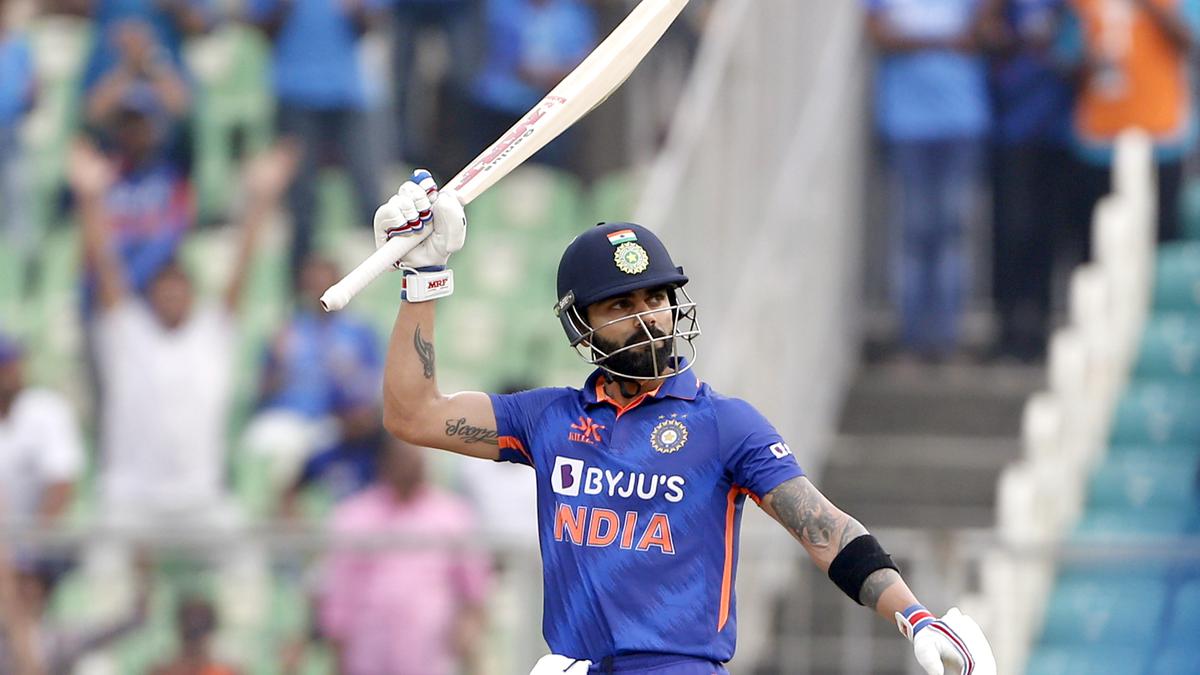Looking for players with heart is an important aspect of selection

India’s Virat Kohli celebrates his century during the 3rd ODI match against Sri Lanka, at Greenfield International Stadium, in Thiruvananthapuram
| Photo Credit: ANI
“My God, look what they’ve sent me…” is the cricket captain’s traditional response to a team he had no part in choosing. It was first uttered by England’s Archie Maclaren in 1902, and has been repeated in various forms ever since. Captains do not always get the teams they want — and vice versa. But only eleven can play, and sometimes those who missed out find that their reputation goes up with every match they don’t play.
The best selectors, as everyone knows, are those who don’t have the responsibility of selecting a team, and have access to social media where they can take the professionals to task for choosing ‘x’ or dropping ‘y.’
The media often have stories about ‘the best cricketers never to have played for India’. Names that often crop up include Padmakar Shivalkar, Rajinder Goel, Amol Mujumdar, B B Nimbalkar, Kailash Ghattani, Kanwaljit Singh, K.P. Bhaskar. But there’s no way of telling if these players would have performed better than those chosen ahead of them. Hindsight is the only path to certainty.
Tiger Pataudi’s attitude to team selection when he was captain was pragmatic. “I got the eleven I wanted,” he told me once. “For the rest, I didn’t care if someone’s cousin or a selector’s favourite was picked.” It was a comment as much about his powers as captain as about dodgy selections those days when nepotism played a role.
Role of captain
Indian captains could recommend, but they had no vote. Now, with a senior player as coach, the captain’s authority has been eroded further. But some captains have discovered that a combination of record and personality can help push their views across. Virat Kohli is a good example of this. The balance of power was in his favour.
In general, it is not difficult to pick a squad of 20 or so at the senior level. The records are available, the potential can be seen. The best selectors ought to pick the junior teams where experience, instinct and judgement are called for, and there may not be too much television evidence.
Judgements have to be made about a player’s heart as well as his head — does he possess cricket intelligence, and is he reliable under pressure? Is he likely to crumble when the going gets tough or rise to the occasion?
In the years 1970-71, when India were rising to the top of the cricket world with series wins in the West Indies and England for the first time, the obvious batting heroes were Sunil Gavaskar and Dilip Sardesai. The supporting role played by the big-hearted Eknath Solkar was crucial but is not often acknowledged.
With India five down for 75 in the first Test in the West Indies, Sardesai and Solkar added 137. At 70 for six in the fourth Test, they added 186. Solkar’s two crucial fifties in England helped draw the first two Tests before India won the last.
Toughness matters
Selectors who follow the players, watch them on and off the field are vital to the understanding of tough players who might lack glamour and power but are all heart. When the going gets tough is when they get going. When the choice is between two players of roughly equal record, the tougher player should get the nod.
In recent years, India’s selectors did well to persist with players like Rishabh Pant and Jasprit Bumrah, neither of whom was considered Test material initially but proved to be champions as their careers progressed. Hanuma Vihari and Washington Sundar, good examples of the tough player, have delivered in difficult situations.
Question of balance
Selection is always a question of balance: balance between youth and experience, between the present and the future, between potential and record. To balance youth and experience is a constant tug-of-war, as Don Bradman put it. Those who have the answers have slowed down and those with speed of eye and muscle haven’t acquired the judgement.
Selectors are bound to face criticism. Perhaps about half the team are certainties — but there will always be alternatives for the other half. Selectors have to live with their choices (their critics don’t).
Vijay Merchant, who as chairman of electors, ended Pataudi’s reign with his casting vote, didn’t think Dilip Sardesai should be picked for the West Indies tour, nor Bhagwat Chandrasekhar for England in 1970-71. And these two players made the difference for India!
For all the latest Sports News Click Here

